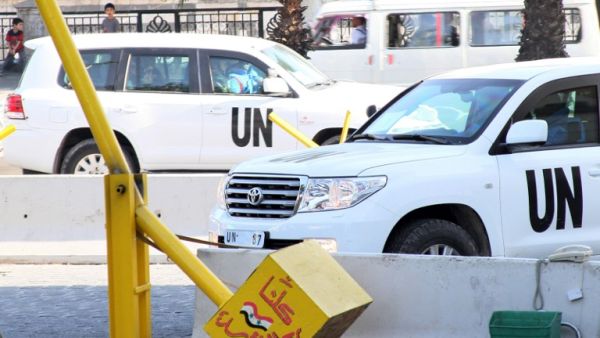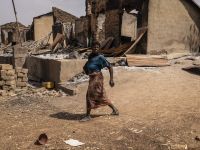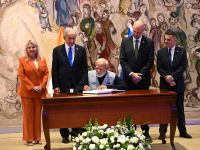Senior Arab and Western military officials gathered in Amman on Monday to discuss the regional security situation.
According to officials familiar with the meeting, the top brass from several Arab and Western states began reviewing the impact of the Syrian crisis on regional stability, especially after an alleged chemical weapons attack in the Damascus countryside which, according to rebel estimates, left over 1,300 dead.
The gathering — which featured the participation of army chiefs from the US, UK, France, Germany, Italy, Saudi Arabia, Turkey, Jordan and Qatar — was previously arranged for mid-September but was brought forward in light of the alleged attack and will span two days, according to Jordanian officials who spoke to Agence France-Presse.
Officials close to the proceedings say participants — headlined by US Chairman of the Joint Chiefs-of-Staff Major General Martin Dempsey — deliberated “threats to regional security and stability”.
The meeting came as reports spoke about US preparations for a possibility of an attack against Syria.
On Sunday, Foreign Minister Nasser Judeh stressed that the gathering, which came as part of a series of regional security meetings, does not represent a change in Jordan’s policy calling for a peaceful political solution to the two-year-old crisis. He was talking at a joint press conference with his Egyptian counterpart Nabil Fahmy.
Western diplomats in Amman claim Dempsey has been given a green light by Washington to pledge US support for regional countries if the Syrian chemical weapons stockpiles pose an “imminent threat”.
Military experts say in case of any attack, there are three potential options in Syria: surgical missile strikes on strategic sites and suspected chemical weapons stockpiles, an air campaign designed to ground Damascus’ air force, and the establishment of no-fly or buffer zones to provide protection for rebel forces and refugees.
“Whether it is strategic missile strikes or even a more drastic option such as a no-fly zone, real military action is on the table,” says Mahmoud Irdeisat, head of the Centre for Strategic Studies at the Royal Defence Academy.
“The Syrian conflict has grown from a humanitarian crisis to a regional crisis that threatens all neighbouring states.”
The US has bolstered its support of Jordan’s national security over recent months in light of spiralling violence in Syria, dispatching over 250 military advisers and establishing a monitoring station along the Jordanian-Syrian border to detect potential chemical weapons use.
In addition to supplying Jordan with F-16 fighter jets and Patriot missile batteries in June, Washington and Amman are currently in talks over the provision of unmanned drones in order to enforce security along the 370-kilometre Jordanian-Syrian border.








